Video Feature & Web-Exclusive Interview
Artist: PIERCE PETTIS
Video: “The Adventures of Me (and This Old Guitar)”
PIERCE PETTIS & GRACE PETTIS AT BLUE ROCK ALIVE! COOL NIGHTS 2020 THIS THURSDAY, DECEMBER 10
Pierce Pettis’ songs have been recorded by Susan Ashton, Dar Williams, Garth Brooks and Art Garfunkel. He was a member of the Fast Folk movement in 1980s New York. He released one independent solo album before signing with High Street Records, a division of Windham Hill. There, he released three albums. His second album there was Tinseltown and his relationship with producer Mark Heard transcended the album. After Heard’s untimely death in 1992, Pettis committed to including a song of Heard’s on every one of his own albums, a practice that continues to this day.
Pierce Pettis, along with his award-winning singer-songwriter daughter Grace Pettis, will be featured at the Blue Rock aLive! Cool Nights 2020 virtual concert series this Thursday, December 10. The series is “for the songs, for the artists, for all of us.” You can buy a Season Pass for only $105—and have a seat in the house by sending in your headshot. They will place the large headshot on a seat, so you will literally be sitting in the room.
Blue Rock’s innovation, quality and creativity is evidenced in concerts produced with broadcast quality audio-video from their renowned Texas room—streamed straight to you. Individual tickets can also be purchased for $25: https://bluerocktexas.com/events.
Pettis was a staff songwriter for PolyGram from 1993-2000. When his High Street Records contract ended, Pettis signed with Compass Records. After a lifetime of crafting finely-wrought, heart-touching songs, singer-songwriter Pierce Pettis feels that he’s finally found his comfort zone. “The biggest change,” he says of this point in his career “has been getting over myself and realizing this is a job and a craft. And the purpose is not fame and fortune (whatever that is) but simply doing good work.”
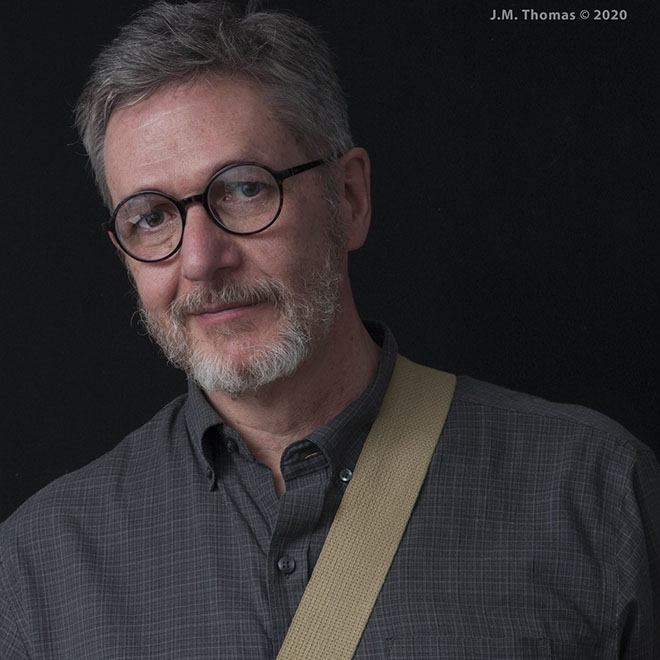
Pierce Pettis’ songs instill inspiration and challenge us to question deeper meaning. Wisdom, introspection and vulnerability are seen in precise proverbs—always searching while shining a light on revealed truth.
We talked with Pierce Pettis about his approach to songwriting, the way he approaches life, what inspires his creative process and how he learned a wealth of lessons along the way.
PIERCE PETTIS Interview
with M Music & Musicians magazine publisher, Merlin David
Tell us the story behind one of the songs you’ll play at Blue Rock’s Cool Nights 2020.
A few years ago, I wrote “If It Wasn’t For the Night” with my friend, David Wilcox, who came to my house wanting to work on Christmas songs. Instead of typical Christmas songs, he wanted to focus on Advent—the dark time preceding Christmas. Advent was traditionally a time of fasting and reflection, so we dug into St. John of the Cross’ poem “Dark Night of the Soul”—on which the song is largely based.
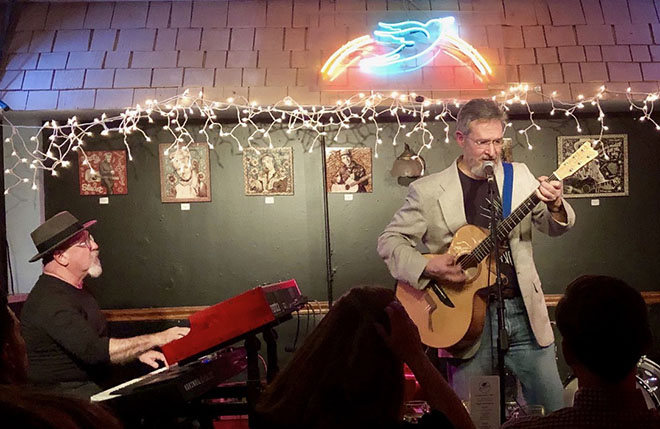
How did the idea of “The Adventures of Me (and This Old Guitar)” come to you?
I was thinking of my kids more than me—despite what the title would suggest. My three grown children have all launched into music in one way or another. Knowing what I know, I wouldn’t be much of a father if that didn’t worry me to some extent. The song is a bit of a warning and perhaps an explanation for how a musician’s bond to his instrument and work can be an obsession that alienates him from home, family, friends and pretty much the rest of humanity.
What did you learn about yourself after recording 2019’s Father’s Son album?
By far, my most enjoyable recording experience—though the years of false starts leading up to it were a bit frustrating. When we finally got into the studio it was great. Garry [West] did a superb job producing. It was wonderful working again with Stuart Duncan and Reese Wynans. Of course, it was great having Grace there.
Pierce Pettis’ songs instill inspiration and challenge us to question deeper meaning. Wisdom, introspection and vulnerability are seen in precise proverbs—always searching while shining a light on revealed truth.
What is your creative process?
I usually have to get someplace quiet and try to squeeze into my right brain. Since I do my own booking, promotion, publishing—it’s hard sometimes to turn off that side of your brain that makes the trains run on time. But I have to do it. I have to get back to the child/dream side where I have permission to play. Sometimes I need some help. I have folders on my laptop with literally hundreds of song starts, ideas—half-written, half-baked stuff. Sometimes just combing through the files, I’ll see something that sparks me. Sometimes I can only add a few lines before the fire burns out. But I can always come back to it. Other times I’ll write the whole song in under five minutes. I think my best songs have taken either five minutes or 15 years, with not much in-between.
What songwriting tip would you like to offer?
Two tips (not that I feel entitled to preach): If you want to write, read and listen. It’s not about you—it’s about the song. In other words, when I write I’m serving the song. I might very well use events, people, places from my own life—but strictly as material. I believe the purpose of the song is not to bring attention to me, but to bring attention to the song. I don’t want the listener to think about me and my life, but to find something they can relate to in their own lives.
First lines of great songs are strong and set the stage. Tell us about “Just Like Jim Brown (She is History)”—one of the best opening lines ever written: She walked away, just like Jim Brown—when he laid that football down; and walked away because he could—all the way to Hollywood.
It just fell out of the sky. I always admired the way Jim Brown accomplished every goal he set for himself in football—then just walked away from it at his peak, without a word. What a mensch. He moved from football to Hollywood the way people naturally move to a better seat on a bus or a plane. So the idea just hit me one day as I was thinking about my own life.

Which songwriters inspired you to write songs?
My first and biggest influence was Bob Dylan, then T Bone Burnett, Joni Mitchell, Elvis Costello, Paul Simon, Randy Newman, Jesse Winchester, Eliza Gilkyson, Gordon Lightfoot, Jackson Browne, Mark Heard, George Jackson and Tom Jones III, Mac McAnally, Darrell Scott, Roger Williams, Hank Williams, Bill Withers and so many more.
Jesse Winchester’s “No Pride at All” is in our Top 100 Songs of All Time. Which of his songs made the biggest impact on you?
It was more personal than any of his albums. I toured with Jesse back in the 80s for the better part of a year. In the beginning, I wasn’t even that familiar with his music. But hearing him night after night, I was exposed to the brilliance of one of our greatest American songwriters—a huge education for me. By the end of that year, my whole concept of what songwriting is all about—changed because of him. He wasn’t just a great writer—he was a great guy with a very clear idea of what songwriting is about—namely, the song. Listen to “A Showman’s Life,” “You Remember Me,” “Yankee Lady,” “Sweet Little Shoe” and “Talk Memphis.”
What did you learn from Jesse Winchester songs?
Great songs are not about the writer, they’re not an advertisement for the writer’s ego or a cry for help. Jesse could write from some very personal events in his life—but it was always about the song, not Jesse. He was very humble that way. I once had the privilege of spending some time with Eudora Welty and I asked her why her autobiography, One Writer’s Beginnings, didn’t seem to dwell on her life so much. She said, “because it’s not about me, it’s about the work!” I think Jesse had the same philosophy—get over yourself and write! (Laughs)

Which Mark Heard albums influenced you the most?
Again, personal to me. Mark was my friend and produced my album Tinseltown for Windham Hill/High Street Records. I practically lived with Mark and his family for several months—working every day. I don’t think I truly appreciated his impact on me and his brilliance as a writer until after he was gone. Over the years, his music has grown on me. It gets better and better. Musically, he was a genius. His melodies and chord progressions are so unique and so catchy—almost Paul McCartney-like. As for favorite albums, I’d go with the last three: Dry Bones Dance, Second Hand and Satellite Sky.
After Mark Heard died in 1992, you covered a song of his on every one of your albums. What an amazing way to honor such a wonderful person.
At first, it was because I felt this was someone who needed to be heard —I still feel that way. But really, they’re just great songs —so much energy—perfect for kicking off a concert or an album. He’s doing a lot more for me than I could ever do for him. His “Look over Your Shoulder” is on my most recent album, Father’s Son.
What instruments/equipment can you not live without?
My Lowden S25J (mislabeled, by the way—it’s a steel string. They must have had too much Guinness that day). (Laughs) This is the guitar I waited for my whole life. I have often gone to the mat with flight attendants and stage hands over that guitar. Nobody touches my Lowden. I also love my other Irish guitar, the Avalon Legacy L32c —killer spruce top.
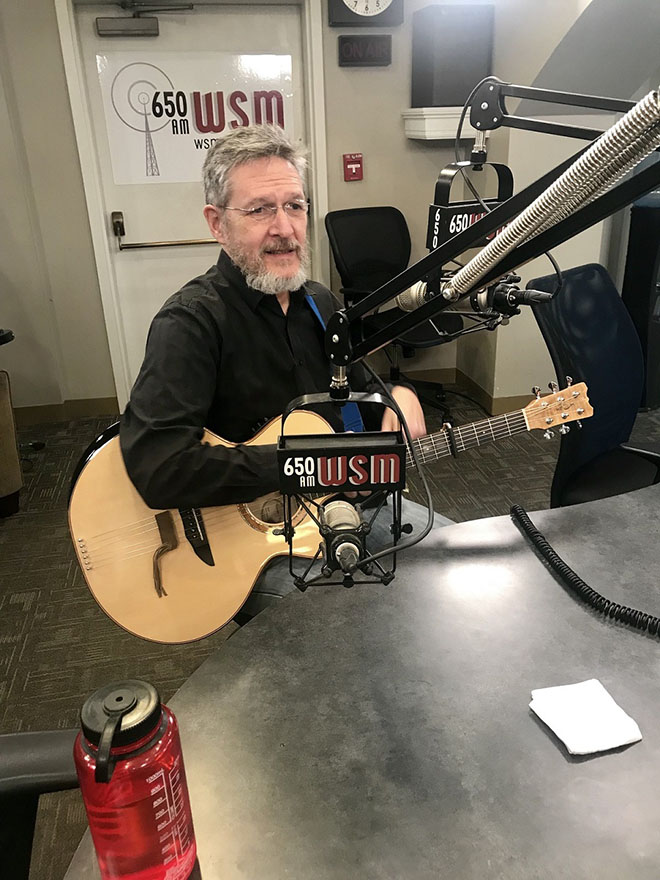
Why are these so essential to you?
There’s really nothing like a hand-made guitar. They seem to have more of the personality of the maker. They’re more personal. I’ve been to Ireland and met the guys who made my Lowden and Avalon. I really believe those guitars have soul. There’s just something really special about them. They bring something out of me that no other instruments I’ve played can. That’s just a fact.
Tell us a “pinch me” moment when you thought “Wow, this is really happening to me!”
When I was 20, watching Joan Baez record one of my songs. Also, working with David Hidalgo, Booker T Jones and Jim Keltner out in LA was pretty cool. It was awesome getting to spend an afternoon with T Bone Burnett and Elvis Costello—though I’m sure neither would remember me—I was a fly on the studio wall. Blessed and honored getting to know Stuart Duncan (and Dieta) over the years. I was especially blessed by my early years at Muscle Shoals Sound Studios—literally watching history being made.
How has living in the South—living in Alabama—influenced your music?
The South is the birthplace of pretty much all American music — jazz, black and white gospel, blues, country, bluegrass, rock ’n’ roll. You can’t really get away from it. Where I grew up was a crossroads with lots of musical influences—pretty much all of the above. And my time at Muscle Shoals Sound Studios when I was starting out was hugely influential to my music —as well as my outlook on life.
What is the best advice someone has given you?
Best advice was from Jesse Winchester when my oldest son was born: “Don’t let your kids grow up without you”—probably should have taken that more seriously.
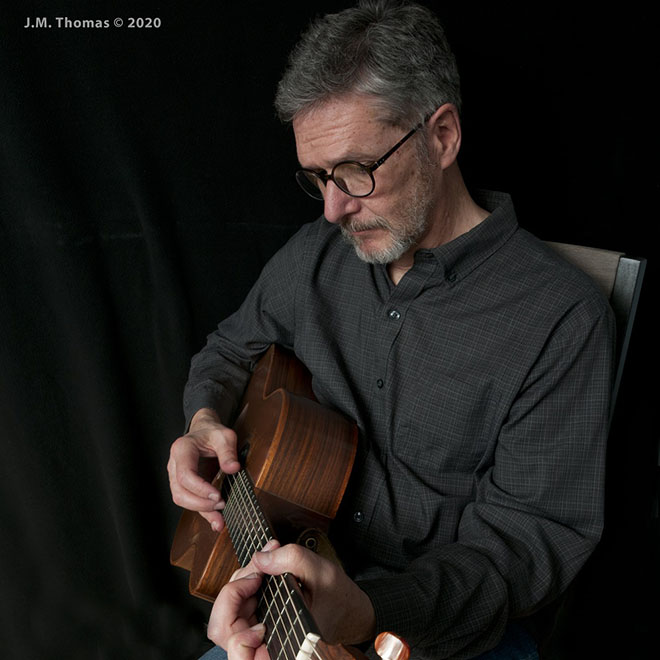
Best advice you’d give to your teenaged self?
Jimmy Johnson (of the MSRS “Swampers”—Muscle Shoals Rhythm Section) in the form of a Socrates-like dialogue:
Jimmy: Do you want to be a star?
Me: Yeah!
Jimmy: OK, you’re a star—now what do you want to do?
Do you remember the first time you heard one of your songs on the radio?
Yes. I was in high school and the local radio station, WFPA, played a 45 I’d cut with my band, “Kellett, Pettis & Matthews” over in Rome, GA. I thought I was famous.
How do you remain hopeful in this strange and unique socio-political time?
My faith in Y’shua HaMashiach. God’s in control, not me.
Where can new fans get more info and stay updated?
Instagram: @piercepettis72
Twitter: @piercerpettis
https://artistdata.sonicbids.com/band/piercepettis/
https://www.bandsintown.com/en/a/49322-pierce-pettis
http://compassrecords.com/artist/pierce-pettis/
https://www.facebook.com/piercepettismusic
https://www.reverbnation.com/piercepettis
https://www.songkick.com/artists/438940-pierce-pettis
https://undiscoveredmusic.net/artists/pierce_pettis
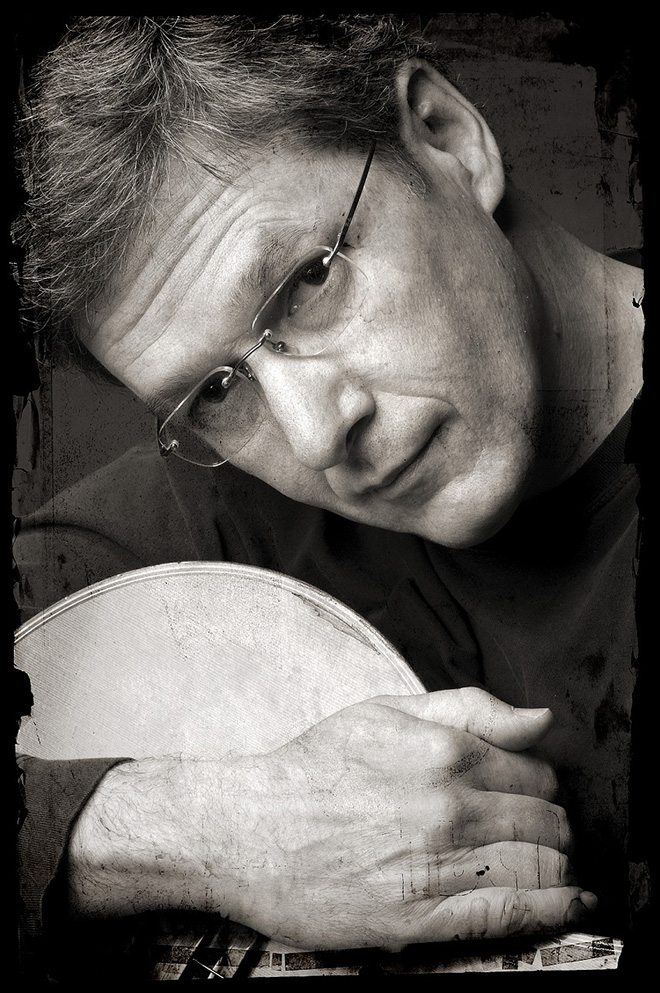



comment closed